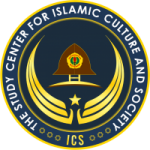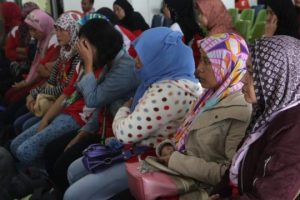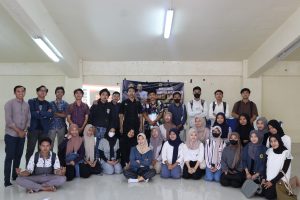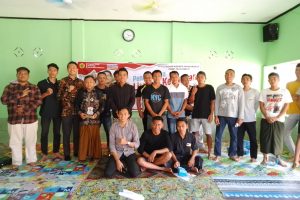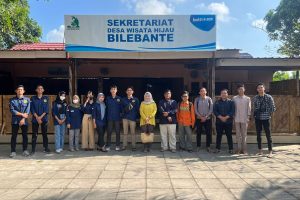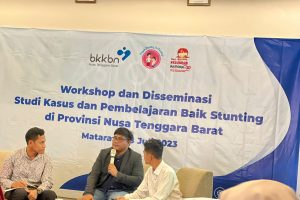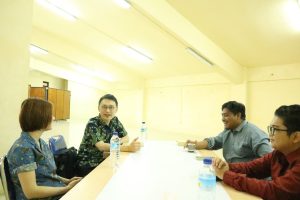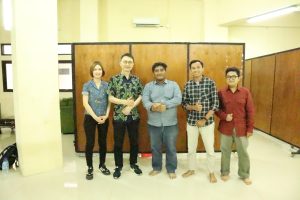The Center for Islamic Culture and Society (ICS) of the University of Mataram this time held a quantitative research methodology workshop to increase the capacity of internal resources of the institution, in order to prepare research breakthroughs for future nation building. This activity is themed, Strengthening Quantitative Research: Survey Methods and Data Analysis, the theme raised is tailored to the research needs that will be developed by the Unram ICS Study Center. This activity was held for two days on Friday-Saturday, June 3-5, 2022, at the Aruna Senggigi Hotel. This workshop was held successfully with the full support of the Regional Government of West Nusa Tenggara Province in collaboration with the Unram ICS Study Center.

The workshop was opened by the Director of the Researh Center for Islamic Culture, and Society Unram, Dr. Saipul Hamdi. In his remarks he said, mastery of research methodology is very important to be improved or strengthened, especially in quantitative research methods, this is important to support the course of Indonesia’s development, especially West Nusa Tenggara in the future. Quantitative methods can describe how the level of public satisfaction with development, measure electability, and map other conditions in a broad scope. Hamdi added that the Center for Islamic, Culture, and Society Studies as an institution engaged in research and social empowerment must better master the models in research, so that it can contribute to the succession of development and become a stock of knowledge for the development of science in the future. This workshop is intended to equip the ICS research team in carrying out research activities that will be carried out later, it is hoped that this training can equip researchers to understand more deeply related to the understanding and ability of researchers in conducting research, processing data, analyzing data, to present research data well.

This workshop consists of three speakers who are experts and experienced in conducting research, especially in quantitative research methods. The presentation of introductory material was opened and delivered by Dr. Dewi Satria Elmiana as a FKIP Unram Lecturer. The focus of the material presented was related to the use of the Narrative Inquiry research approach, he said that the research that is widely used in western countries today is research with the Narrative Inquiry approach, with this approach we can deeply understand the research problems to be explored, so that the level of validity of the research conducted is very high and generally the research output using this approach can be a practical solution to the problems faced by someone in his life. The introduction of this research approach is an introduction to the delivery of core material according to the theme raised, namely related to quantitative research methods in surveys and data processing.

The first quantitative research material was delivered by Dr. Muhammad Taqiuddin as Director of the NTB Consortium for Participation Studies and Development (Konsepsi). The focus of the material presented was related to the use of quantitative methods in surveys. He said that quantitative methods in research are very important to master and apply, especially in the scope of macro research such as, measuring the level of public satisfaction with development, assessing policy effectiveness, measuring electability in elections, measuring personal image in front of the public, and other things that are general in nature. He added that quantitative research is a powerful forecasting tool, with this method we can predict measurable possibilities in a method formulated with very high accuracy, so it is appropriate if this method is used as a tool in supporting future development.

The second day of the workshop was filled with the delivery of advanced quantitative material by Dr. Fauzan Fuad as the chairman of the Indonesia Drum Corps Association (IDCA) NTB. The focus of the material emphasized the use of statistics in formulating and processing quantitative research data. He said that the effectiveness of using quantitative methods in research depends on the accuracy of the formula and consistency in field data collection. Quantitative research method is one of the ideal research methods in mapping the general conditions of a social fact, so that the accuracy of the results obtained is very close to the real truth. For example, in predicting election results, community satisfaction levels, development effectiveness, and others. So that simply by strengthening the formula and consistency in the implementation of the research method that has been formulated can provide satisfactory results. Finally, the quantitative research methodology workshop organized by the Center for Islamic, Culture, and Society (ICS) Studies at the University of Mataram was closed with a joint commitment between participants and resource persons to jointly intensively conduct training and stabilization for the development of quantitative research in the future. So that with all the series of activities that have been carried out and intensive further training later, ICS University of Mataram is ready to present its real contribution to scientific development and development in Indonesia, especially NTB in the future.
